Subscribe to ‘Words Of Hope’
Get our emails direct to your Inbox with updates about all our campaigns, trips and events.
“He showed us the power of hope.” We remember Archbishop Desmond Tutu.

Lala ngoxolo Tata
Archbishop Desmond Mpilo Tutu
7th October 1931 – 26th December 2021
— — — — — — —
Archbishop Desmond Tutu, South Africa’s ‘moral compass’, has shaped the ethos of Amos Trust, moulded our spirituality and inspired our imagination as much as just about anyone. His theology of hope has called us to seek out the very best sides of our human nature and his example has stirred us to activism.
Diminutive in stature but larger than life, we will remember both his steely determination in the face of violent oppression and injustice and his impish humour and joyous smile. He was the very best kind of troublemaker.
At his funeral, Michael Nuttall, the former bishop of Natal, said his quest for justice was “always grounded in mercy, in an enduring loving-kindness: the gentle touch, the forgiving heart, the warm smile.”
A man of words and action, he showed us the power of hope. His prophetic faith in the face of racism, injustice and violence, shining light into the dark corners of power, told us that “Goodness is stronger than evil; love is stronger than hate; light is stronger than darkness; life is stronger than death; victory is ours through him who loved us.”
Diminutive in stature but larger than life, we will remember both his steely determination in the face of violent oppression and injustice and his impish humour and joyous smile.
Much of Tutu’s philosophy can be summed up in the word ubuntu, which could be translated as “I am because you are”. It says we find our best self only in relationship to others. Life is something we share. We understand ourselves better when we live in company, not alone. I am a person through other people. My humanity is tied to yours.
“Ubuntu speaks about the fact that you can’t exist as a human being in isolation,” explained the Archbishop. “It speaks about our interconnectedness. You can’t be human all by yourself... we think of ourselves frequently as just individuals, separated from one another, whereas we are connected and what we do affects the whole world.”
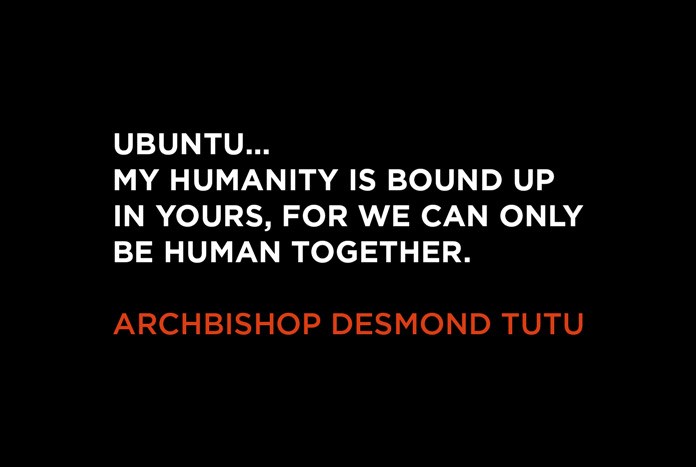
Ubuntu: For we can only be human together. Graphic: Amos Trust
— — — — — — —
The following piece, called ‘God’s Dream’, appeared in Words of Hope, the first collection of creative writing produced by Amos. It was adapted from Tutu’s book God Has A Dream: A Vision of Hope for Our Time.
In Africa recognition of our interdependence is called ubuntu in Nguni languages, or botho in Sotho. It is the essence of being human. It speaks of the fact that my humanity is caught up and inextricably bound up in yours. I am human because I belong. It speaks about wholeness; it speaks about compassion.
A person with ubuntu is welcoming, hospitable, warm and generous, willing to share. Such people are open and available to others, willing to be vulnerable, affirming of others, do not feel threatened that others are able and good, for they have a proper self-assurance that comes from knowing that they belong in a greater whole.
Desmond Tutu famously used to say, “We are prisoners of hope”, and it is this hope that compels us onwards in pursuing our vision that another world is possible...
They know that they are diminished when others are humiliated, diminished when others are oppressed, diminished when others are treated as if they were less than who they are. The quality of ubuntu gives people resilience, enabling them to survive and emerge still human despite all efforts to dehumanise them.
According to ubuntu, it is not a great good to be successful through being aggressively competitive and succeeding at the expense of others. In the end, our purpose is social and communal harmony and wellbeing.
Africa has a gift to give the world that the world needs desperately, that we are made for harmony, for interdependence. If we are ever truly to prosper, it will be only together.
— — — — — — —
Desmond Tutu famously used to say, “We are prisoners of hope”, and it is this hope that compels us onwards in pursuing our vision that another world is possible, a world where justice flows, the silenced are heard and no one is forgotten.
We asked a few friends for some words of tribute and personal recollection, sharing how Archbishop Tutu has inspired and influenced them as they struggle to help create that other world.
— — — — — — —
First, Garth Hewitt, singer-songwriter and founder of Amos Trust, writes about an encounter with Tutu that left a lasting mark:
I often talk about hearing Martin Luther King speak at St Paul’s Cathedral when I was a teenager. It had a huge impact on me. And then I began to hear and see Desmond Tutu as he became a key leader against apartheid. He seemed a successor to the theology of action and hope of Martin Luther King.
This seemed to be confirmed when I bought the essential writings of MLK, ‘A Testament of Hope’, and found that it was dedicated to Bishop Desmond Tutu, with a quote by him: “The only solution to South Africa’s crisis is for whites to accept blacks as human beings.” The strand of theology from these two leaders expressed their faith in affirming the dignity and value of everyone. It was a theology of liberation and hope for humanity.
My first meeting with the then Bishop Tutu was through my godfather, John Taylor, who was Bishop of St Albans. Knowing that I was inspired by Tutu, he invited me to a clergy meeting at St Albans Cathedral at which Bishop Tutu was speaking and introduced me to him afterwards. What a great gift from my godfather, to introduce me to Desmond Tutu!
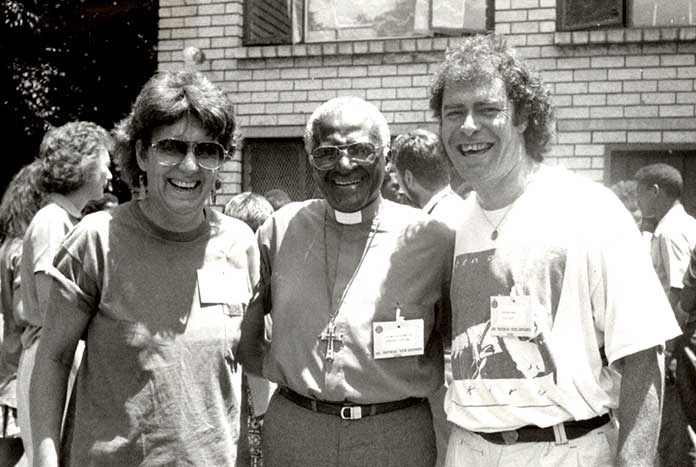
Archbishop Desmond Tutu with Gill and Garth Hewitt in Krugersdorp near Johannesburg in December 1989. Photography: Garth Hewitt archive
— — — — — — —
I met Tutu again when I was invited to a youth conference with him in Krugersdorp near Johannesburg. The conference brought young people from Soweto and other townships. Tutu’s policy was to get them to talk about the horrors of living under apartheid and about what happened to them from day to day. They did this, often using theatre, or a poem. It had a huge impact on me. As we sat quite shattered afterwards, someone said, “you can sing now.” I thought, I’m not sure if I can! We felt we were hearing about the crucifixion that apartheid brought; but by Sunday we were ready for the resurrection as Tutu led the Eucharist — his joy and hope was extraordinary!
Archbishop Tutu always spoke out strongly on Palestine: “I have witnessed the systemic humiliation of Palestinian men, women and children, by members of the Israeli security forces. Their humiliation is familiar to all black South Africans.”
“As we sat quite shattered afterwards, someone said, “you can sing now.” I thought, I’m not sure if I can!”
Amos Trust’s ‘Words of Hope’ is a creative, simple liturgy led each week by Amos Director Chris Rose, and always includes this quote from Archbishop Tutu:
“I have a dream”, God says. “Please help me to realise it. It is a dream where there will be more laughter, joy and peace, more justice and goodness and compassion and love and caring and sharing. I have a dream that swords will be beaten into ploughshares and spears into pruning hooks. My children will know they are members of one family, God’s family — there are no outsiders, all belong.”
I included some of those words in a song I recorded in the autumn which even references Tutu. The song is called ‘True Companion’ and one verse includes these words:
“There is a better dream,
comes from the heart of God”
Says Brother Desmond Tutu, who says all belong
“All belong and all are equal,
all are made in the image of God”
Such a holy dream, straight from the heart of God
In God’s family, all are equal, all belong.
Here I think you can see the legacy Archbishop Tutu leaves, and how hugely he has influenced me, and Amos Trust.
— — — — — — —
Mpendulo Nyembe, Director of uMthombo Street Children, remembers a profound voice that will continue to resonate:
Growing up in the 80s and through the 90s, one of the most profound voices for me, which stood as a centre that held when all else was falling apart, was Bishop Tutu, as he was affectionately called throughout the township streets. I was later to realise what a global icon he was.
Prayerfully calling for peace and justice, in the dark days of political upheaval and uncertainty, he remained steadfast in his pursuit. As I slowly read and watched censored and uncensored publications about what was going on, the strong voice that proclaimed “God for all the human race” echoed all around.
“Do your little bit of good where you are; it’s those little bits put together that overwhelm the world.” Archbishop Desmond Tutu
Archbishop Desmond Tutu’s voice became one of those most sound voices speaking truth, justice and peace and shaping my yearning for a unified nation, free of any form of injustice brought by the apartheid regime. A voice of reason that guided many of us towards a peaceful transition to a democratic republic.
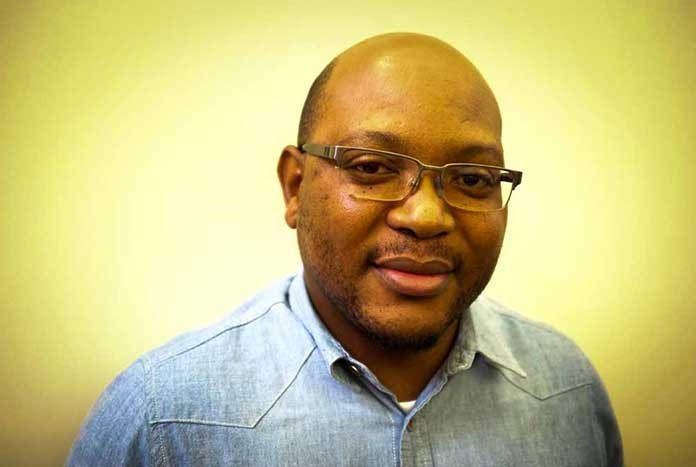
Alternatives to Street Life: Mpendulo Nyembe, Director of uMthombo Street Children in Durban, South Africa. Photography: Nick Welsh
— — — — — — —
As I continue to try to live up to the Arch’s teachings, his voice will continue to resonate consciously and unconsciously within me. A man of God who took up the spiritual calling to proclaim the All-Loving God in fullness.
In Bishop Tutu’s own words: “Do your little bit of good where you are; it’s those little bits put together that overwhelm the world.” May your spirit live in us!!!
— — — — — — —
Chris Rose, Director of Amos Trust, fondly remembers a moment when Tutu’s very tangible support made a real difference:
Every step of the 2010 Street Child World Cup, which was held in Durban, South Africa, was a step of faith. People got the idea, and loved it, and my co-founder John Wroe would say how “the world was conspiring with us”, yet still it was a really hard slog.
No one had ever brought together eight teams of children who were or had been living on the streets — children with no IDs and no passports who often had fairly length rap sheets. Thanks to a very generous supporter, we had enough money to appoint Jenny Dawkins to lead the project but that was it. And we knew full well that the eThekwini Municipality, of which Durban forms part, definitely did not want the Street Child World Cup to happen. In fact, they tried to close it down at several points while the event was running, but by that stage the international media coverage and the local influence of our global sponsors was such they could not succeed.
The very first endorsement we received, which was to be followed by David Beckham and a host of others footballers and managers, was from Archbishop Desmond Tutu. I still remember Jenny rushing in and telling us that she had received a letter from Tutu supporting this fantastic initiative. For us, it was by far the most important endorsement we received. John even turned the endorsement into 11 prints, which he got Desmond Tutu to sign. We sold eight of these to raise funds but three went to John, Jenny and me — a very, very special memento.
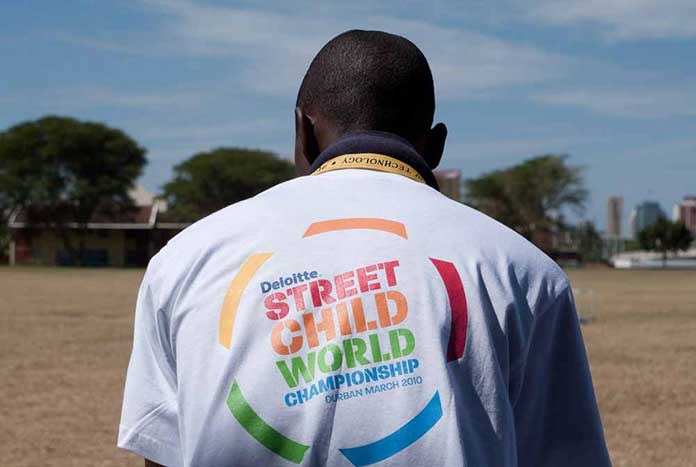
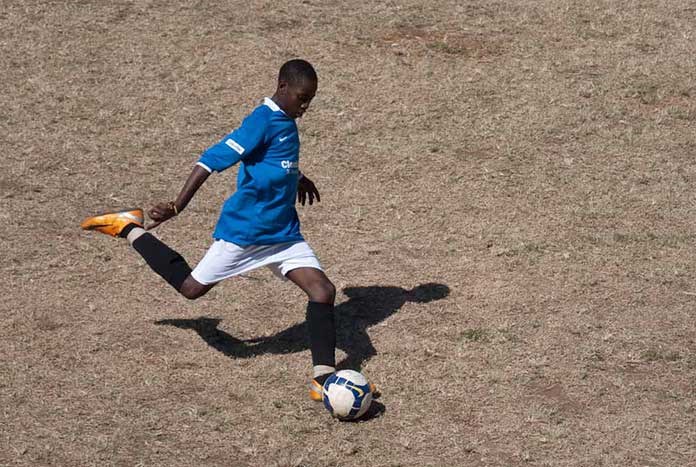
Street Child United: The inaugural Street Child World Cup in Durban in 2010. Photography: Wilf Whitty
— — — — — — —
The Street Child World Cup was inspired by and sought to amplify the campaign of our Durban partners uMthombo, working to ensure that these children were no longer rounded up by the police and treated as worthless or ‘dirt’. But its spiritual inspiration was Desmond Tutu, and his belief that treating one of these children as less than human was like spitting in the face of God.
The very first endorsement we received, which was to be followed by David Beckham and a host of others footballers and managers, was from Archbishop Desmond Tutu.
Desmond Tutu was then and remains an inspiration for Amos Trust. Every Tuesday we use his words in our time of ‘Words of Hope’, and his call of ubuntu, that we are all interconnected, lies at the heart of our work and transforms the conversation about the intersectional nature of our three main areas of work into a simple fact of life.
— — — — — — —
Finally, Tom Hewitt MBE, Founder of Surfers Not Street Children, recalls someone who was “an inspiration to me and so many others”:
This man.
This man was a freedom fighter and a rabble-rouser. He was a man of faith, a social justice hero, a hilarious joker, and a man of extreme love and kindness. He stood firmly on the side of justice and coined the phrase ‘rainbow nation’ for his dream of what South Africa was and could be. He was labelled a communist by people who didn’t understand the term. He was loved by much of black South Africa and hated by some sections of white South Africa during apartheid. Yet, he never stopped calling out injustice, even during the new post-liberation era.
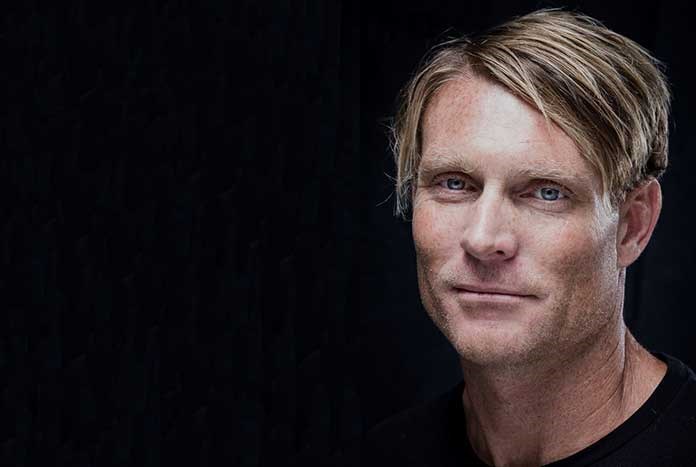
Surfers Not Street Children: Tom Hewitt MBE. Photography: Unprecedented Pictures
— — — — — — —
On arrival in South Africa in 1990, I went straight from the airport to his house with my Dad (who knew him). Unfortunately, he was not there. I was fortunate enough to later meet ‘The Arch’ who was an inspiration to me and so many others during the last years of apartheid. His motivation was one of the reasons I wanted to stay in South Africa to be involved in the latter part of the struggle and the transition into the New South Africa, though I had very little to offer. Some years later, I sat in the Truth and Reconciliation hearings, listening to him and to harrowing accounts of atrocities by apartheid-era state officials.
He was loved by much of black South Africa and hated by some sections of white South Africa during apartheid. Yet, he never stopped calling out injustice, even during the new post-liberation era.
One of my fondest memories was bumping into him whilst he was out jogging. I was checking the surf on the East London beachfront in the Eastern Cape when in that moment, I excitedly and cheekily shouted out of the window of my van at the top of my voice, “Good Morning Desmond!” (totally forgetting how to address him respectfully as Tata or Mfundisi). He turned around, threw his arms up, waving, and shouted “Good Morning!!” back at me with such great exuberance that it left his bodyguards, he and I, in stitches at the whole situation. He was a very funny man.
— — — — — — —
Lala ngoxolo Tata. ❤️
A Little More...
More First Of The Month
Older editions of our First Of The Month essays are available to read and download here.
Words Of Hope E-news
Sign up to receive our regular ‘Words Of Hope’ emails and keep up to date with all the latest Amos news and information, including details of our trips and events, news from our partners around the world and all of our campaigns.
Online reflection
Join us every Tuesday at 5pm for ‘Words Of Hope’ — our online reflection. Simply click here to join us a few minutes beforehand.
Amos Trust
7 Bell Yard, London
WC2A 2JR
UK
Telephone:
+44 (0) 203 725 3493
Email:
[email protected]
Registered Charity No.
1164234

This item has been added to your shopping basket. Please click on the Checkout button below where you can choose your quantity.
Continue shopping Checkout Close